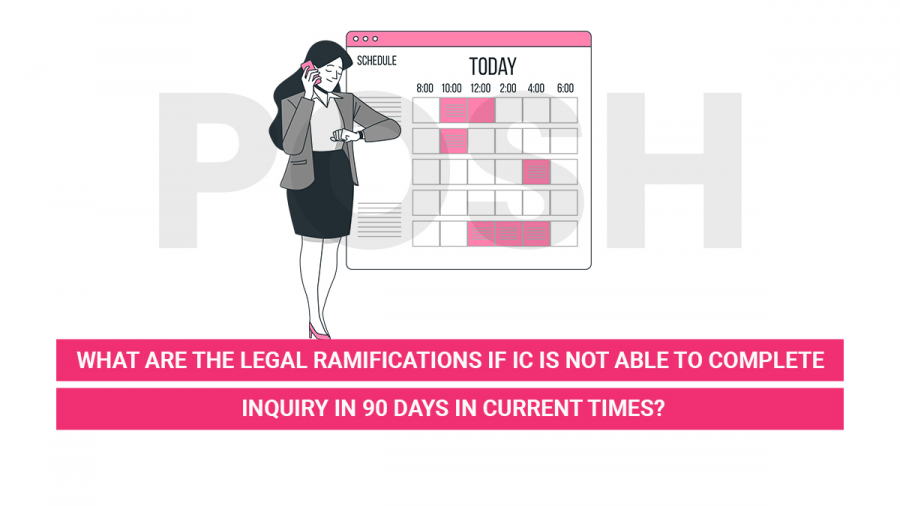The Internal Committees (“IC”) constantly endeavour to complete inquiries on time i.e. within a period of 90 days as prescribed by Law. At the same time ICs must also ensure that the principles of natural justice, which entail giving equal opportunity to both sides to present their side is not compromised.
Last one year (and now more than ever) has been tough on everyone and ICs are no exception. As the instances of sexual harassment online have increased, ICs have also had to do inquiries. However, they are facing their own set of challenges such as:
- Non-availability of Parties / IC Members due to COVID-19
- Privacy of parties concerned when they have to connect from home
- Infrastructure support while conducting inquiries from home etc.
This, in some situations, has led to delay in completing the inquiry within the prescribed time period. Hence, the question we are being asked is – what are the legal ramifications if IC is not able to complete inquiry in 90 days?
In a normal situation, exceeding 90 days would mean non-compliance. However, the situation is completely different currently. This has also been taken into consideration by the Supreme Court of India. In SUO MOTU WRIT PETITION (CIVIL) No(s).3/2020 dated 23rd March 2020, the Supreme Court stated that “It is hereby ordered that a period of limitation in all such proceedings, irrespective of the limitation prescribed under the general law or Special Laws whether condonable or not shall stand extended w.e.f. 15th March 2020 till further order/s to be passed by this Court in present proceedings.”
The order of the Hon’ble Apex Court makes it clear that due to various challenges, virtual or otherwise, if the 90 day time limit is not met, the period of limitation would be considered as extended. Thus, while the time limit of 90 days is crucial, but if there are legitimate, justifiable reasons for delay in completion of inquiry, the same will also be considered.
Supreme Court took this decision exercising its power under Article 142 read with Article 141 of the Constitution of India and declared that this order is a binding order on all Courts/Tribunals and authorities. Vide order dated 27th April, 2021, it restored the order dated 23rd March 2020, and has extended the limitation period until further notice.
Please find attached Copy of both Orders. We hope this helps.
 Cart is empty
Cart is empty



